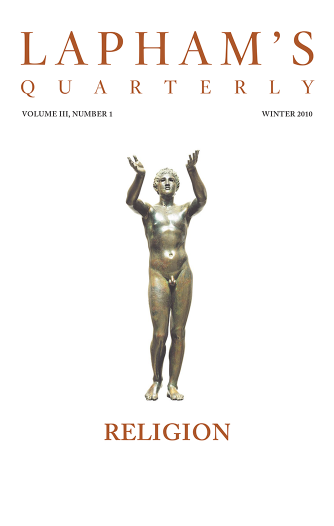What value to me
the seven kinds of treasures
by which others set store—
the precious things coveted
by the run of men?
My son Furuhi,
the child fair as a white pearl,
born of the union
between his mother and me,
used to play with us
when the morning star announced
the dawn of each new day—
to stay close to the bedside
where our sheets were spread,
to frolic with us
standing and sitting.
And when evening
came with the evening star,
he used to take us
by the hand and say to us,
“Let’s go to bed now,”
and then, in his pretty way,
“Father and Mother,
don’t go where I can’t see you.
I want to sleep
right here in the middle.”
And we thought, trusting
as people trust a great ship,
“May the time come soon
when he becomes an adult;
for good or for ill,
may we behold him a man.”
But then suddenly
a mighty storm wind blew up,
caught us from the side,
overwhelmed us with its blast.
Helpless, distraught,
not knowing what to do,
I tucked back my sleeves
with paper-mulberry cords,
I took in my hand
a clear, spotless mirror.
With upturned face,
I beseeched the gods of the sky;
forehead to the ground,
I implored the gods of the earth.
“Whether he be cured
or whether he die—
that is for the gods to say.”
But though I begged them
in frantic supplication,
there resulted
not the briefest improvement.
His body wasted,
changing little by little;
he uttered no more
the words he had spoken
with each new morning;
and his life came to its end.
I reeled in agony,
stamped my feet, screamed aloud,
cast myself down,
looked up to heaven, beat my breast.
I have lost my son,
the child I loved so dearly.
Is this what life is about?
© 1991, the Board of Trustees of the Leland Stanford Jr. University. Used with permission of Stanford University Press. www.sup.org
“Longing for His Son Furuhi.” At the age of forty-two in 701, Okura traveled as a scribe on an embassy to the Tang court in China, where he remained for seven years and composed a poem that speculated that “the pines on the shore” of Japan “must long for our return.” While later serving as governor of the province of Chikuzen from 726 to 732, he became involved in the salon of fellow poet Ōtomo no Tabito. Both men’s works are contained in an eighth-century anthology called the Collection of Ten Thousand Leaves.
Back to Issue




